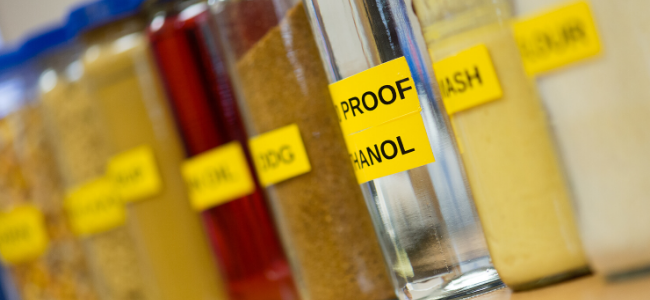U.S. ethanol is helping meet fuel supply needs in Australia – the result of a domestic supply gap and engagement by the U.S. Grains Council (USGC) and its ethanol industry partners.
“U.S. ethanol is not subject to tariffs into Australia, per the terms of the Australia–United States Free Trade Agreement that went into effect in 2005, but it does face a price disadvantage due to an excise tax that exempts domestic producers,” said Brian Healy, USGC director of global ethanol market development. “Our discussions with the Australians have always focused on the benefits of expanded national ethanol use, beyond the state policies, to at least a 10 percent blend rate, allowing a role for trade.”
Australia – a net crude oil importer – does not have a national requirement to blend ethanol. As a result, ethanol accounts for less than two percent of fuel sales, even though ethanol is supported at the state level with blend requirements of 6 percent in New South Wales and 3 percent in Queensland.
The country’s three ethanol producers typically can meet this domestic demand. In the current year, however, Australia is facing a scarcity of fuel ethanol – the combination of a shortage in wheat and other feedstock supplies due to widespread wildfires and a transition by Australian bio-refineries from fuel ethanol to increased production of Extra Neural Alcohol (ENA) for industrial use.
As a core mechanism to ensure supply in meeting blend policies, ethanol trade has supported the Australian states of New South Wales sand Queensland in meeting their mandates. The United States exported 3.1 million gallons of ethanol (1.01 million bushels in corn equivalent) to Australia in the 2018/2019 marketing year, up from minimal volumes the previous marketing year. To-date in the current marketing year (September 2019-February 2020), U.S. ethanol exports to Australia totaled 635,000 gallons (223,000 bushels in corn equivalent).
These figures represent U.S. ethanol sold directly into Australia. However, ethanol traders commonly buy U.S. ethanol to store and breakbulk into smaller parcels in South Korea for transhipment into South East Asia and Oceania, including to Australia. That means realized U.S. ethanol exports into Australia are even higher than direct sales – upwards of an additional 4.8 million gallons (1.7 million bushels in corn equivalent) in 2019 and another 2.2 million gallons (780,000 bushels in corn equivalent) thus far in 2020.
Engagement by the Council and its U.S. industry partners, Growth Energy and Renewable Fuels Association, helped secure these imports. Two Australian attendees participated in the Ethanol Summit of the Asia-Pacific in May 2018, which brought together high-level ministry and industry officials from 17 countries to encourage cross-cooperation among countries as they seek to develop or further enhance renewable fuels policies and, in particular, promote the adoption of ethanol policies with a role for trade.
Those conversations continued at the Global Ethanol Summit in October 2019. At the event, the Council, its ethanol industry partners and the U.S. Department of Agriculture’s Foreign Agricultural Service (USDA’s FAS) encouraged future policy changes to address the excise tax discrepancy.
The Council remains engaged in these discussions, including helping sponsor the Australia Clean Fuels Summit in October 2020. The event will bring together experts from across the entire Australian fuel supply chain to exchange best practices for enhanced ethanol policies and greater overall usage.
“The Council and its partners continue to engage in the Australian market to support adoption of a nationwide ethanol policy,” Healy said. “Providing technical expertise and consistent messages encourages ethanol policies with a role for trade that support the Australians in meeting the objectives of their state policies at a national level.”
About The U.S. Grains Council
The U.S. Grains Council develops export markets for U.S. barley, corn, sorghum and related products including distiller’s dried grains with solubles (DDGS) and ethanol. With full-time presence in 28 locations, the Council operates programs in more than 50 countries and the European Union. The Council believes exports are vital to global economic development and to U.S. agriculture’s profitability. Detailed information about the Council and its programs is online at www.grains.org.

